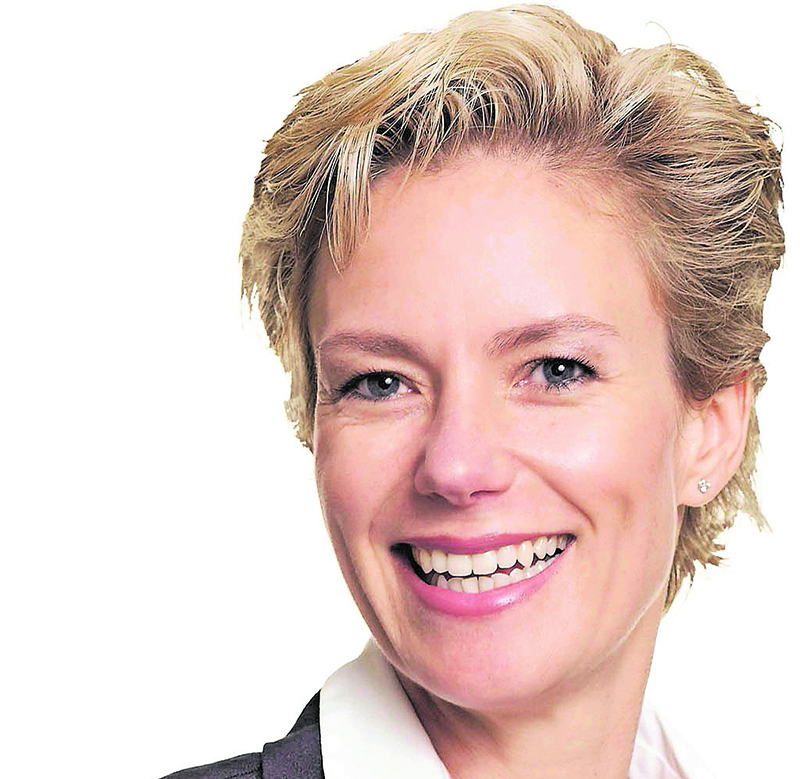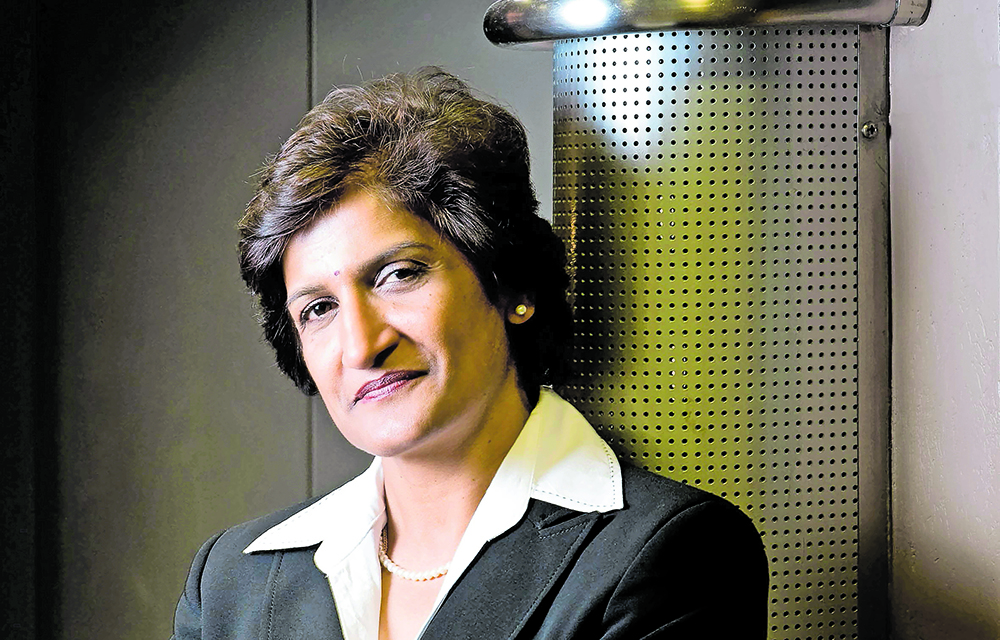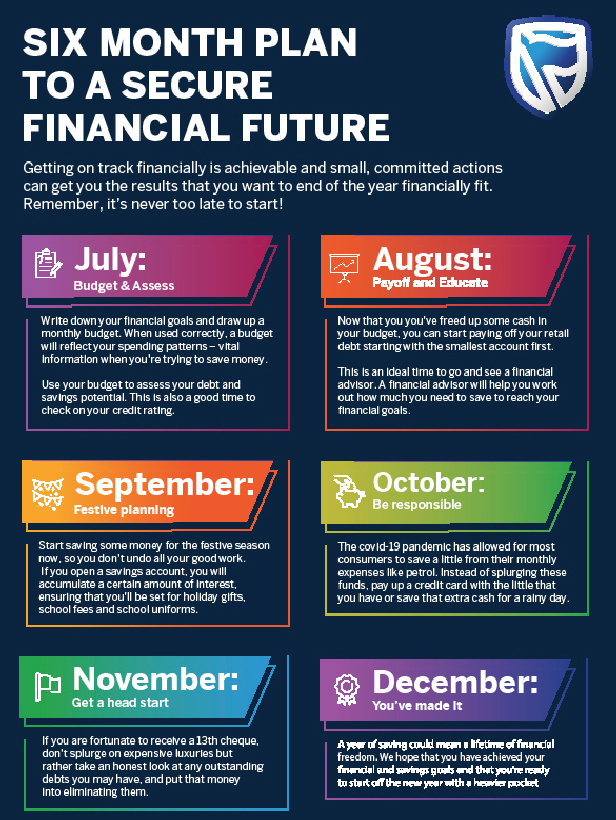Zibusiso Moyo – Client Solution Owner: Everyday Banking
SPONSORED
The recent past has seen rapid globalisation, creating a connected economy that is subject to the vagaries of economic swings. This has dramatically influenced South Africa’s savings culture over the years and reinforced the critical importance of rainy-day savings.
While Standard Bank’s book reflects an increase in amounts saved over the years, this growth is largely attributed to wealthier individuals who are better positioned to continue growing their money through savings and investments, even during times of economic downturn.
The number of middle-income South Africans who enter the world of savings has, however, slowed. “In an economy that is declining, with rising unemployment levels, and businesses feeling the impact of the Covid-19 lockdown, most people are feeling the financial strain,” says Zibusiso Moyo, Client Solution Owner: Everyday Banking of Standard Bank. “This is mostly felt by middle-class South Africa. Without access to disposable income, necessities trump savings contributions.”
There are insurance packages that protect from loss of income, but there is also protection in the form of savings products, which, Standard Bank says, are largely under-utilised. “The common misconception is that you need a lot of money to start saving; that is not the case — it can be as little as R50. There are savings products geared for every type of person.”
 Covid-19 may force many South Africans to change their attitudes towards saving money. (Photo: Expatica)
Covid-19 may force many South Africans to change their attitudes towards saving money. (Photo: Expatica)
Society schemes remain popular, but are evolving
Stokvels continue to be an important safety net for many South Africans. “This vehicle remains popular and is now attracting younger savers and aspiring investors, who are realising the power of pooling funds for investment,” says Moyo. “While the stokvel mechanism remains the same, its purpose is evolving — people are realising that it can be used to make bigger investments in property and other asset classes, that could not be achieved alone, to create alternative revenue streams.”
TFSA the vehicle of choice for long-term savings
Another savings vehicle that has gained popularity among South Africans is the tax-free savings account (TFSA). Launched by government in 2015 with the aim of incentivising individuals to save more, the TFSA allows for individuals to contribute R36 000 per annum, or R500 000 over their lifetime. Any contribution made to the TFSA is exempt from tax on interest, dividends and capital gains.
If any funds are withdrawn from the TFSA, it is important to remember that they can’t be put back into the savings vehicle. This helps to get individuals to stay invested for the long term. It is also worth noting that should a saver exceed the contribution limits; they will be penalised at 40% on contributions over the allowed limit.
The importance of savings to a country cannot be understated. Economic growth is tied to investment, from both locals and foreigners, in businesses or other assets. “As foreign direct investment is hard to come by these days, there is increased reliance on investment from households to boost economic growth,” says Moyo.
While many find it challenging to save in case unexpected expenses arise, the reality is that life is uncertain; nothing has demonstrated that better than the current situation we are in. This has created a shift to being careful and spending on needs rather than wants.
Demand for short-term, easy access savings vehicles
Standard Bank has recently seen a demand for savings products that offer attractive interest rates and easy access to the funds, should the need arise. Standard Bank’s Flexi Advantage account is a term investment which also allows partial redemption should the need arise, which means that you can withdraw up to 40% of what you put into the account during the year, while the remainder of the funds are fixed and can’t be touched. The account lets customers access funds at any time and offers competitive interest rates of up to 4.65%.
For those looking for more access to liquidity, the Standard Bank MarketLink acts as a savings product but also allows full transactional capability, so you can transact (with a physical card) if necessary while still earning interest of up to 2.5% on the funds invested.
With a large need among consumers to grow their funds, Standard Bank’s MoneyMarket Select investment account has become one of the bank’s fastest-growing products. The account lets customers invest from R250 000 and enjoy higher returns. Interest rates are variable and are currently sitting at 4.35% for this low-risk account, which also allows anytime access to funds.
Graduating from saving to investing
If you are able to save consistently through any of these products, and are fortunate enough to not have to dip into those funds, the amount can then be moved into an investment fund through Liberty and Stanlib that offers higher rewards in the form of returns. These investments are not without risk, but an investment expert can assist in setting up a diversified portfolio for investors that works to offset potential drops.
“Each financial institution has several products that all help, depending on the customer,” says Moyo. “At Standard Bank, we gain an understanding of their needs — whether they want to save monthly, or contribute a lump sum, for example — and provide them with an understanding of what savings is about, how interest rates work, and help them to access what is relevant and right for their needs.” — Zibusiso Moyo – Client Solution Owner: Everyday Banking
 Maya Fisher-French, personal finance journalist.(Photo: News24)
Maya Fisher-French, personal finance journalist.(Photo: News24)
This is the perfect time to talk savings
Covid-19 cannot be ignored in the context of Savings Month, says Prem Govender, chairperson of Sasi (the SA Savings Institute) and the Financial Services Consumer Education Foundation, who wondered whether it might be considered insensitive to run Savings Month when many people can barely afford to put food on the table.
She was speaking at a webinar to launch Savings Month, on July 11. In fact there may be no better time to talk of savings in order to highlight the differing experiences of those who already had an emergency fund to help them weather the storm, and the unfortunate experiences of those who did not. A recent TransUnion South Africa financial hardship study found that even before the pandemic had really taken hold, 83% of consumers had seen their household incomes negatively affected by the lockdown with 91% reporting concern about paying their bills.
Gerald Mwandiambira, acting chief executive of Sasi and My Money author, says the crisis has highlighted the importance of having a plan in place and being in charge. “My acronym for this month is FATE: be in control of food expenses, cut back on your accommodation and transport costs, and rethink your entertainment and even education.”
Many might disagree on saving on education which is more an investment than an expense, but not with the theme of being in control of one’s expenditure. Sasi has been hosting a series of webinars throughout Savings Month on financial resilience.
TransUnion’s South African Industry Insights Report for the first quarter of this year showed that outstanding balances continued to grow across all major consumer lending categories, and was strongest for non-bank personal loans at 17.2% year-on-year.
The only category to maintain balanced growth was bank personal loans, which was at a rate comparable to the highs of last year, while consumer demand for credit remained strong, with enquiries across the five major credit categories up 12% year-on-year.
Govender believes Covid-19 will force people to change their attitudes to money. It’s a tough lesson to learn, for breadwinners to sit at home and not be able to earn an income. “Financial management starts at home. We need to think about what we are teaching our children.”
She describes the impact of the pandemic “is the single biggest blow dealt us”. Even before the pandemic, South Africa was mostly a nation of non-savers, with finances in poor shape. “We need to now see what we can do to rebuild our fragile financial situations.”
Maya Fisher-French, a personal finance journalist and author of Money Questions, says that the oft-mentioned excuse for South Africa’s rather negative savings rate, that “South Africans are poor” is simply not credible, given that many of our peers in SADC, sub-Saharan Africa and BRICS have positive savings rates; we save “substantially less than them”.
What makes South Africa so different? “It is the fact that it’s so easy to get credit extension, and so to buy on credit. It hasn’t allowed people to build a culture of saving. In many other countries, if you want to buy something you save for it. In South Africa, people don’t think like that: they think in terms of ‘how can I access credit’, and often don’t even consider the interest rate,” says Fisher-French.
She gives the example of the country of Turkey. In 2000 it had a good savings rate and virtually no household debt. “Then they introduced credit cards, and by 2014 it had gone from nearly 0% household debt to 55% debt as a ratio of household income; as well as one million people no longer keeping up with their credit card payments. Its national savings rate dropped to its lowest level in three decades.”
She explains the challenge in instilling a culture of saving: “Say a person wants to buy a R2 000 washing machine: she could save R200/month for ten months; with the advantage that having developed that discipline, she may continue putting aside R200/month even after making her purchase. In contrast, if she bought it on credit she would have to make 24 payments of R200/month, the extra 14 months being interest and credit insurance. That ‘difference’ goes to a credit company — making them very rich and the consumers very poor — when it could just as easily be going into our savings.”
 Prem Govender, chairperson of Sasi (the SA Savings Institute) and the Financial Services Consumer Education Foundation. (Photo: SaveTaxFree)
Prem Govender, chairperson of Sasi (the SA Savings Institute) and the Financial Services Consumer Education Foundation. (Photo: SaveTaxFree)
Of South Africa’s total R1.4-trillion credit market, R410-billion is unsecured credit facilities (or consumer spending) of which R168-billion (or 41%) is the fees and interest, Fisher-French says. This unsecured credit figure has doubled over the past 10 years.
It is this figure which could make up the savings pool of the country if people could change their savings culture and spending patterns. They don’t, she says, because most people do not understand how much they pay in fees and interest, given that these amounts are often not transparent.
“The worst offenders are credit cards. If you spend R20 000 on a credit card and never touch it again, thereafter paying only the minimum monthly repayment, few people would be aware that it would take them 25 years and R53 600 to finally pay off that balance at an interest rate of 20% to 25%. From my experience, most people imagine it would take them about two years to pay it off, because few realise they are paying roughly 3% of a reducing balance (not a flat percentage). If a person is constantly using their credit card, this slowing-down effect becomes obscured,” says Fisher-French.
Misconceptions about money
Kristia van Heerden, chief executive of Just One Lap and host of The Fat Wallet podcast, points out that people would not consider starting up a business without having a business plan demonstrating containment of expenses and the revenue levels needed to cover expenses, which produces a profit at the end. Yet few salaried people think of applying that same discipline in terms of a financial plan to their personal lives and salary.
“The definitions of ‘profit’ and ‘savings’ are much the same thing. People who wouldn’t question a business plan query why they have to have a financial plan or to save. This is because there are many misconceptions about saving and money. One is that you need to be earning money before having a financial plan. In fact, a financial plan is more about life decisions than financial decisions.
“A second misconception is that money buys happiness,” a fallacy she proceeds to debunk. “Initially, having more money certainly does bring more happiness, up to a point where one’s basic expenses are covered. But after that point, it becomes easy to get caught in a spending cycle to recapture that initial happiness. Spending money can give a fleeting joy, but unless one has figured out for oneself what really brings you happiness, you will become deluded into shopping for that happiness.
“We need to ask ourselves: once I’ve covered my basic expenses, what does a good life look like to me?”
Savings Month
Savings Month is the South African Savings Institute (Sasi)’s national savings awareness campaign. Savings Month is held in July each year and the objectives of the campaign are to:
• Promote debate around key aspects of saving
• Raise awareness of the benefits of short, medium- and long-term planning
• Build relationships with key partners to leverage future opportunities
• Get consumers to move from ennui into action
For more information on the Standard Bank Savings Products, please visit: https://www.standardbank.co.za/southafrica/personal/products-and-services/bank-with-us/savings-and-investment/our-accounts
